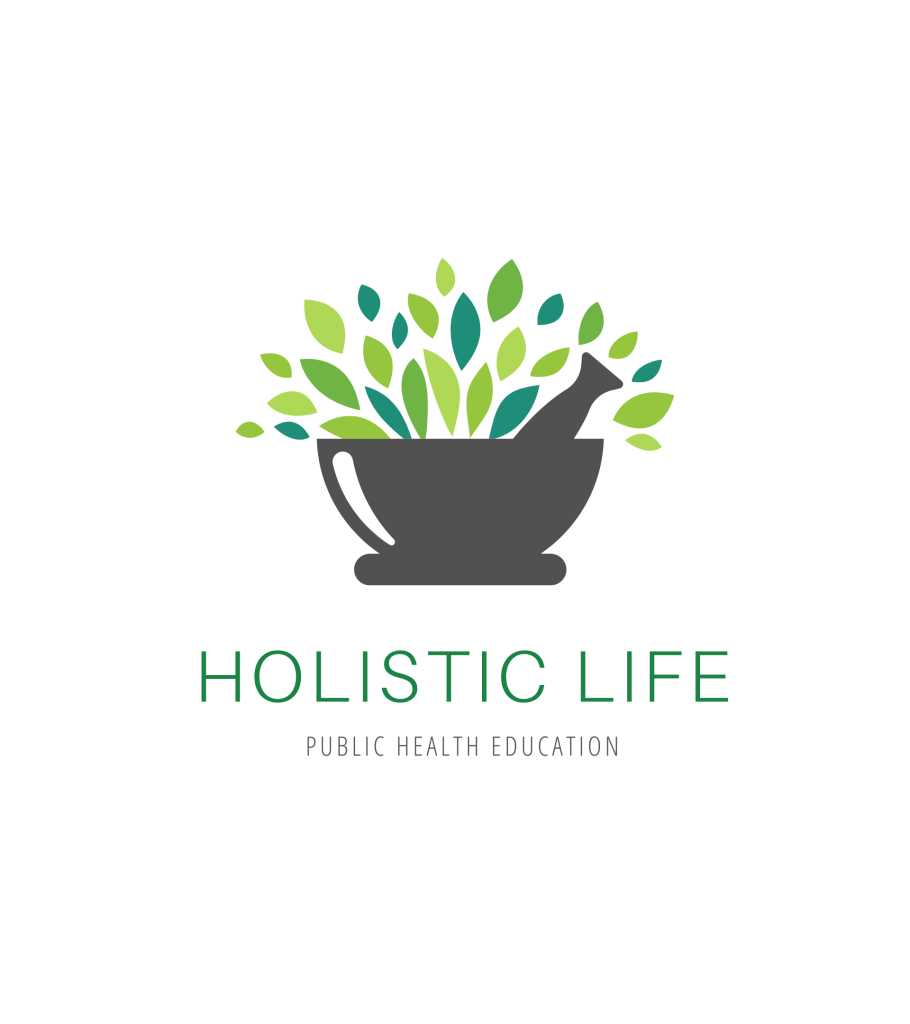Are you ready to make 2025 the year you truly invest in your well-being? The holistic health movement is growing, and understanding how to harness its power can transform your life.
This guide is designed to help you confidently navigate every step of choosing the right holistic health course. You will learn how to select programs that align with your goals, whether you seek a new career or wish to boost your family's wellness.
Explore holistic health foundations, learning formats, core topics, career pathways, and proven enrollment strategies. Let this guide empower you to start your journey toward holistic wellness today.
Understanding Holistic Health: The Foundations
Holistic health is rapidly gaining traction as more people seek a comprehensive path to well-being. If you are considering a holistic health course, understanding the foundations is essential. These courses are designed to address every aspect of human wellness, combining ancient wisdom with scientific evidence to empower learners. Let us explore what truly sets holistic health apart.
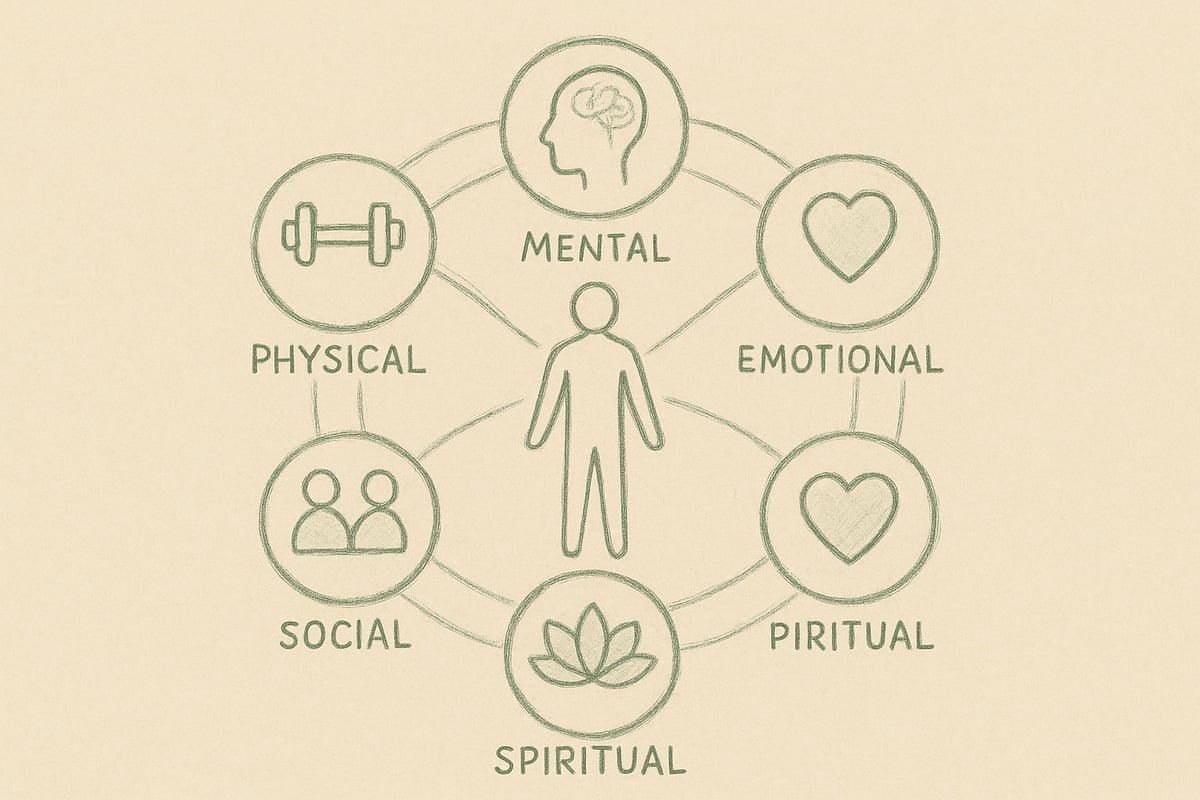
Defining Holistic Health
Holistic health takes a multidimensional approach, focusing on physical, mental, emotional, spiritual, social, and environmental aspects. Unlike conventional medicine, which often targets isolated symptoms, a holistic health course emphasizes the importance of addressing root causes.
The “seven pillars” of holistic health typically include nutrition, movement, sleep, stress management, connection, purpose, and environment. For example, integrating nutrition, regular movement, and stress management can help prevent chronic diseases, offering a more sustainable wellness strategy. This comprehensive view sets the stage for the rest of your holistic health journey.
The Science and Spirit Behind Holistic Wellness
A holistic health course blends evidence-based practices like yoga, meditation, and plant-based nutrition with time-honored healing methods. Ancient wisdom from Ayurveda, Traditional Chinese Medicine, and Indigenous healing is increasingly validated by modern research. The mind-body connection is central: psychological well-being directly influences physical health, and vice versa.
Studies show that holistic approaches can increase life expectancy by preventing disease and promoting vitality. For instance, meditation is proven to reduce stress and support cardiovascular health. To explore the integration of research and tradition, see this evidence-based holistic medicine guide, which highlights how science and whole-person care work together.
Why Holistic Health Is Booming in 2025
The popularity of the holistic health course is surging in 2025 as more people recognize the impact of lifestyle-related diseases. Data shows a dramatic rise in online enrollments, with one course reporting over 14,500 learners. This reflects a broader shift toward preventive care and self-empowerment.
Remote learning and digital health tools are making holistic education accessible worldwide. Telehealth platforms and holistic wellness apps are enabling individuals to take charge of their health from home. This trend illustrates the growing trust in holistic strategies for lifelong well-being.
Who Benefits from Holistic Health Education?
A holistic health course benefits a wide range of learners. Aspiring practitioners—such as coaches, therapists, nurses, and doctors—gain new tools for client care. Individuals seeking self-care or family wellness use holistic methods for daily life improvement.
Career changers and lifelong learners find opportunities for growth, while communities can reclaim traditional and integrative care practices. For instance, families transitioning from conventional medicine to holistic approaches often see improved wellness outcomes for all members.
Types of Holistic Health Courses in 2025
Choosing the right holistic health course in 2025 starts with understanding the variety of options available. From beginner-friendly introductions to advanced degrees, the landscape is more accessible and diverse than ever.
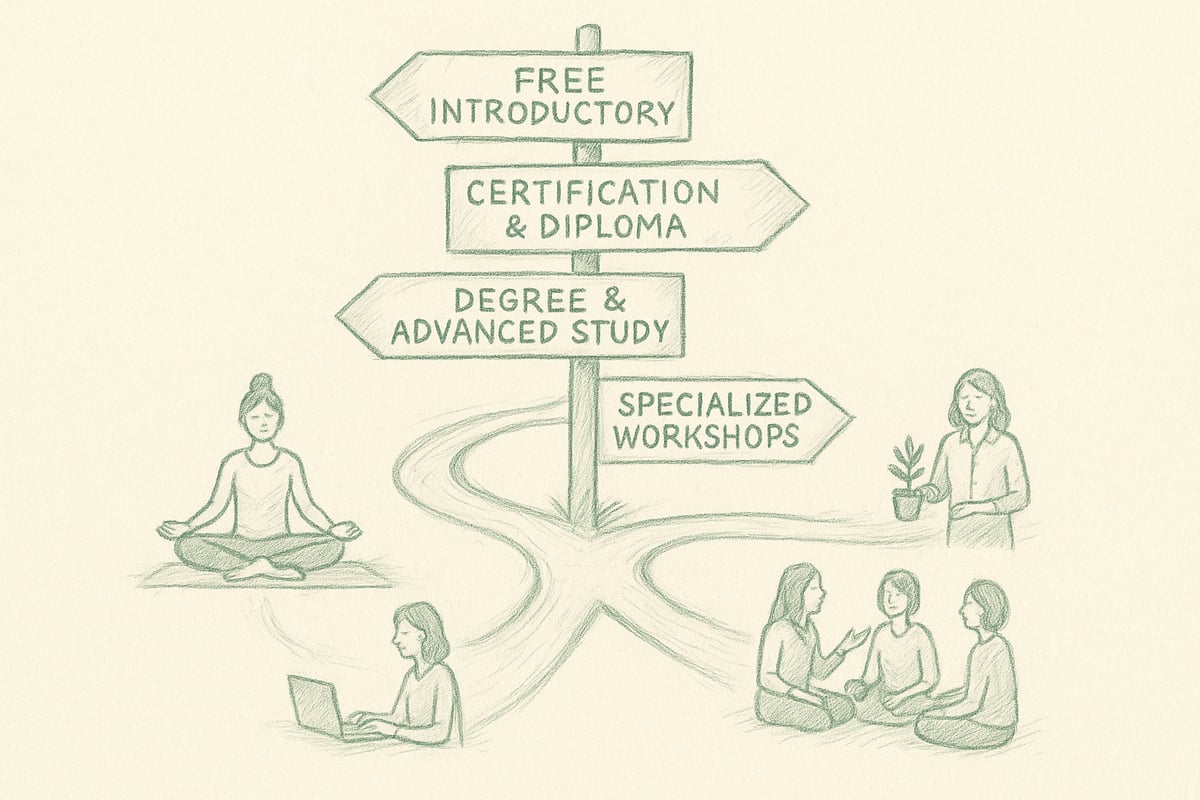
Free Introductory Courses
Free introductory holistic health course options are widely available in 2025, designed for anyone curious about holistic wellness. These courses typically cover foundational principles, such as mind-body balance, nutrition basics, and stress management.
No prerequisites are needed, making them ideal for learners of all backgrounds. Many feature short video lessons, downloadable materials, and interactive quizzes to support personal growth.
For example, Alison's "Becoming a Holistic Health Practitioner" offers a CPD-accredited introduction with a digital certificate upon completion. These free holistic health course options make it easy to explore the field before committing to further study.
Certification and Diploma Programs
Certification and diploma programs provide a more comprehensive holistic health course experience. These programs often follow a structured curriculum, including 12-module certifications, 4-week collectives, or extended diploma tracks.
Learners dive deeper into anatomy, nutrition, coaching skills, and energy medicine. Accredited programs carry industry recognition, helping graduates advance professionally or start their own practice. According to evidence supporting whole health elements, structured learning on topics like spirituality and holistic care has a measurable impact on health outcomes.
Examples include holistic health coaching certifications, which blend theory with practical application. These pathways are ideal for those seeking validated skills and professional credentials.
Degree and Advanced Study Options
For those seeking academic rigor, holistic health course offerings now include certificates, master's, and even doctorate degrees in integrative health sciences. These advanced programs encompass research, practicum experiences, and specialty tracks in areas like functional medicine or public health.
Universities and dedicated institutes deliver these degrees, often requiring prior education or professional experience. The curriculum is designed to develop both theoretical knowledge and hands-on expertise.
Institutions such as the International Institute of Integrative and Holistic Health Sciences are leading examples. Graduates emerge prepared for roles in research, academia, or high-level clinical practice within the holistic health field.
Specialized Short Courses and Workshops
Specialized short courses and workshops provide targeted holistic health course experiences for those seeking skill-building or personal enrichment. Topics range from yoga and meditation to herbalism, energy healing, and parenting for wellness.
These flexible programs typically last from a single weekend to four weeks, allowing learners to focus on one subject at a time. Formats include live online sessions, recorded modules, and interactive group work.
Examples include four-week intensives on gut health or stress management. Short courses are ideal for practitioners looking to expand their toolkit or individuals interested in a specific aspect of holistic health.
Core Topics Covered in Holistic Health Courses
Holistic health courses offer a rich tapestry of learning, spanning nutrition, movement, mind-body practices, preventive medicine, and cultural perspectives. Each topic is designed to give you a comprehensive foundation and practical tools for real transformation, whether your goal is personal wellness or a professional path.
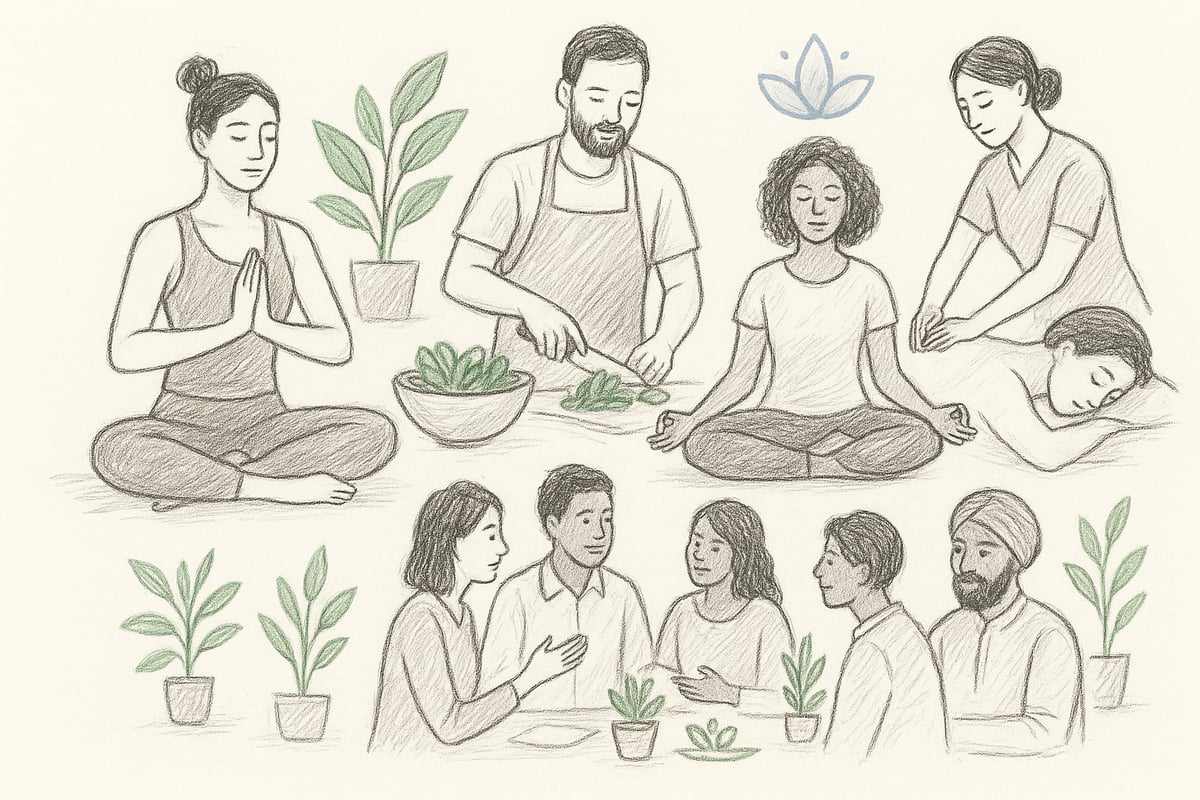
Nutrition and Herbal Medicine
Nutrition and herbal medicine form the backbone of any holistic health course. You will explore plant-based nutrition, learn about the science of phytochemicals, and discover the role of detoxification in everyday life.
Courses often compare plant and animal fats, helping you make informed dietary choices. Herbal remedies are introduced with scientific studies to back their effectiveness. For example, modules on herbal nutrition explain how functional foods can support immune health and overall vitality.
A holistic health course empowers you to integrate these principles for both personal and professional benefit.
Mind-Body Practices: Yoga and Meditation
Mind-body practices are essential in every holistic health course. You will study the principles of yoga, focusing on how movement brings energy, balance, and inner peace.
Different styles and poses are explained, each with unique health benefits. Meditation techniques are covered in depth, including breathwork and mindfulness for mental clarity and stress reduction.
Courses often include step-by-step guidance on correct postures, helping you develop a consistent practice. By engaging with these mind-body topics, a holistic health course supports your journey toward resilience and emotional well-being.
Bodywork and Energy Therapies
Bodywork and energy therapies are integral to a holistic health course curriculum. You will learn about various massage techniques, from Swedish to deep tissue, and their benefits for stress relief and muscle recovery.
Energy healing modalities such as Reiki, chakra balancing, and crystal healing are also explored. Some courses highlight the role of hypnotherapy in overcoming depression and promoting overall wellness. The importance of evidence-based care is emphasized, as seen in evidence-based practice in holistic nursing, which demonstrates how research enhances outcomes in holistic environments.
By mastering these therapies, a holistic health course prepares you to offer well-rounded, effective care.
Lifestyle Medicine and Preventive Health
Lifestyle medicine is a key focus in any holistic health course. You will explore interventions for improving sleep, movement, stress management, and environmental health.
Courses teach the importance of self-care and taking ownership of your health journey. Many learners are motivated by the potential to reduce medication use and hospital visits through holistic strategies.
For example, self-guided plans for chronic disease prevention are a common feature. By applying lifestyle medicine principles, a holistic health course helps you create sustainable wellness routines for yourself and others.
Integrative Approaches and Cultural Perspectives
Integrative and cultural perspectives set a holistic health course apart. You will examine how modern science and ancestral wisdom can work together for optimal health.
Courses address the need to decolonize healthcare and reclaim traditional healing methods. Topics include systemic inequities in health education and the value of culturally relevant content.
Examples such as Afroindigenous wellness groups highlight the importance of community and heritage. By embracing integrative approaches, a holistic health course fosters respect for diversity and a deeper understanding of holistic care.
Choosing the Right Holistic Health Course for You
Selecting the best holistic health course can shape your wellness journey for years to come. With so many options available in 2025, a thoughtful approach is key. Use the following framework to match your goals, preferences, and aspirations with the right program.
Assessing Your Goals and Interests
Start by clarifying why you want to enroll in a holistic health course. Are you seeking personal growth, aiming to improve your family's well-being, or planning a career transition? List your interests—nutrition, mind-body practices, or energy healing.
Use self-assessment tools to rate your learning style and background. Some courses are theory-heavy, while others focus on hands-on skills. By aligning your objectives with course offerings, you ensure a satisfying and relevant educational experience. This clarity also helps you stay motivated throughout your holistic health course.
Evaluating Course Content and Accreditation
Next, review course outlines and determine if the curriculum matches your needs. Look for a holistic health course that balances scientific rigor with traditional healing wisdom. Recognized accreditation and Continuing Professional Development (CPD) points are essential for credibility and career advancement.
Consider how the program integrates evidence-based and cultural approaches. For example, studies on the holistic system of care effectiveness show the value of combining traditional practices with proven methods. Prioritize programs with clear assessment standards, such as requiring 80% or higher on evaluations for certification.
Comparing Learning Formats: Online, Hybrid, and In-Person
Decide which learning environment best suits your lifestyle. Online holistic health course platforms offer flexibility, self-paced modules, and access to global communities. Hybrid models combine digital content with in-person workshops for practical skills. In-person courses provide immersive, hands-on learning in small groups.
Compare options:
| Format | Flexibility | Hands-on Skills | Community |
|---|---|---|---|
| Online | High | Limited | Virtual |
| Hybrid | Moderate | Strong | Mixed |
| In-Person | Low | Excellent | In-person |
Evaluate live versus recorded sessions, and consider app-based learning for added convenience.
Cost, Commitment, and Return on Investment
Financial planning is crucial when choosing a holistic health course. Free and introductory classes are widely accessible, while mid-tier and premium certifications may require a larger investment. Estimate the time commitment—short workshops might last two weeks, whereas advanced diplomas could span a year.
Weigh the potential benefits: Will the course improve your career prospects, or help you achieve personal wellness goals? For instance, a 15-day self-paced course offers quick wins, while a year-long certification can lead to professional advancement and deeper expertise.
Holistic Family Practice: Integrating Clinical Care and Education
Holistic Family Practice exemplifies a comprehensive approach, blending clinical care, education, and digital wellness solutions. Their offerings include virtual holistic consultations, personalized care plans, and a digital app with over 130 health programs.
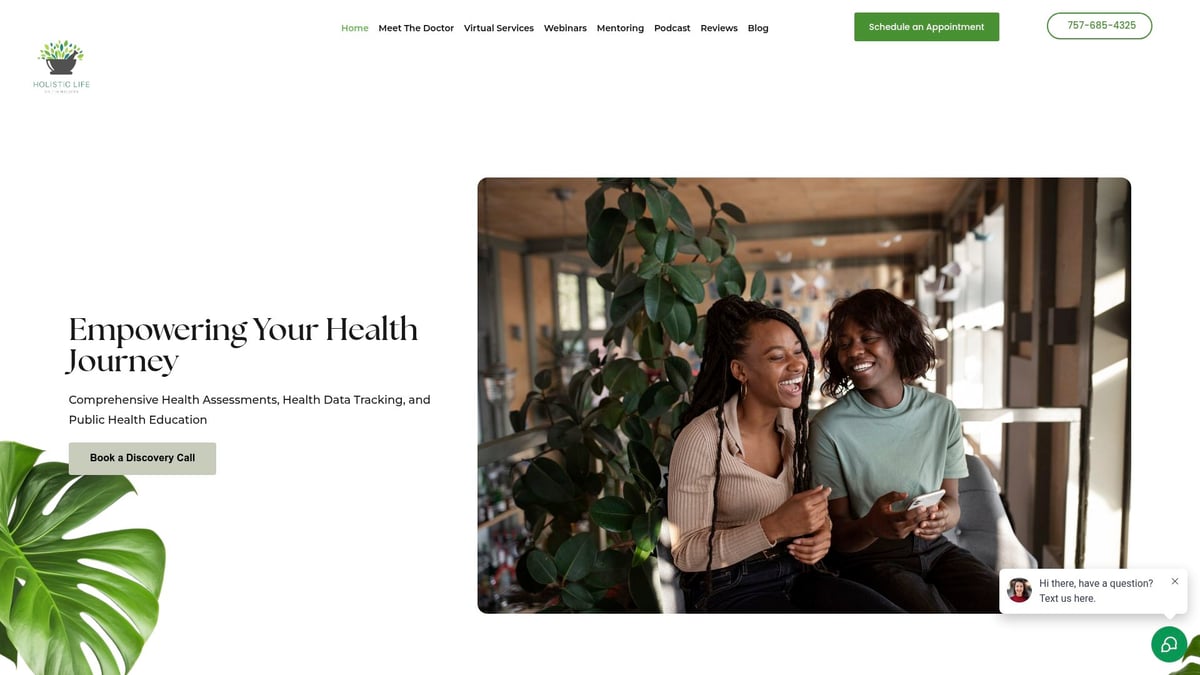
Education pathways range from free introductory holistic health course options to certification and degree tracks. Their unique model empowers both patients and students by merging scientific research with holistic wisdom. The Holistic Life App supports self-guided care, while the International Institute of Integrative and Holistic Health Sciences provides advanced training for aspiring professionals.
Career Pathways and Professional Opportunities in Holistic Health
Exploring a holistic health course in 2025 opens a dynamic range of professional opportunities. Whether you aim to guide others toward wellness or expand your expertise, a holistic health course is your gateway to a rewarding and flexible career.
Practitioner Roles and Specializations
A holistic health course equips you for diverse roles, each with unique responsibilities and rewards. You might become a health coach, massage therapist, nutritionist, wellness consultant, or community health worker.
| Role | Description | Avg. Salary (USD) |
|---|---|---|
| Health Coach | Guides clients in lifestyle change | $50,000 |
| Massage Therapist | Provides therapeutic bodywork | $42,820 |
| Nutritionist | Advises on diet and nutrition | $61,650 |
| Wellness Consultant | Designs holistic wellness plans | $55,000 |
| Community Health Worker | Promotes health in communities | $46,000 |
Pursuing a holistic health course prepares you to make a meaningful impact on individual and community well-being.
Building a Business or Private Practice
After completing a holistic health course, many graduates build their own businesses or private practices. Success requires not just expertise, but also strong digital and interpersonal skills.
Steps to launch your practice:
- Define your niche and target audience.
- Create a professional website and social media presence.
- Produce content, such as blogs or podcasts, to reach clients.
- Engage with wellness communities for support and networking.
A holistic health course empowers you to combine passion with entrepreneurship, helping others while growing your own brand.
Working in Healthcare, Education, and Corporate Wellness
A holistic health course opens doors to employment in clinical, educational, and corporate settings. You may work in clinics, schools, wellness centers, or large companies with wellness programs.
Possible roles include:
- School counselor integrating mindfulness.
- Wellness coordinator in corporate offices.
- Educator leading group workshops.
- Facilitator in community wellness initiatives.
With a holistic health course, you can adapt your skills to diverse environments and meet the growing demand for integrative wellness professionals.
Continuing Education and Lifelong Learning
Holistic health is a rapidly evolving field. Continuing education is essential to stay current and deepen your expertise after your initial holistic health course.
Consider these pathways:
- Advanced specialty certifications.
- Graduate degree programs in holistic health.
- Ongoing workshops and mentorship collectives.
Investing in your growth through a holistic health course and further study ensures your skills remain relevant and impactful.
Navigating Certification, Licensing, and Professional Networks
Completing a holistic health course is only the beginning. Understanding certification, licensing, and professional networks is crucial for career advancement.
Steps to follow:
- Review your state or national certification requirements.
- Obtain CPD-accredited certificates for credibility.
- Join professional associations and attend networking events.
- Display both digital and physical credentials.
By navigating these steps after your holistic health course, you build a trustworthy reputation and expand your professional reach.
How to Enroll and Succeed in a Holistic Health Course
Embarking on your holistic health course journey in 2025 can be both inspiring and transformative. Whether your aim is personal growth or a new professional path, following a clear roadmap is essential. Here’s how you can confidently enroll and make the most of your learning experience.
Step 1: Research and Compare Course Options
Start by exploring trusted platforms and directories dedicated to holistic health course offerings. Read reviews and testimonials to gauge the experiences of past learners. Pay close attention to course outlines, learning outcomes, and the expertise of instructors.
Consider creating a comparison table for your top choices:
| Course Name | Accreditation | Format | Reviews |
|---|---|---|---|
| Alison’s Holistic Health | CPD | Online | 4.8/5 |
| Integrative Wellness Inst. | Yes | Hybrid | 4.6/5 |
This process ensures you select a holistic health course that aligns with your goals and expectations.
Step 2: Prepare for Enrollment
Once you’ve chosen your holistic health course, gather any prerequisites or documents required. This may include identification, transcripts, or previous certificates. Make sure your technology—such as a reliable computer and internet connection—is ready.
Plan your schedule realistically. Set aside dedicated study hours, for example, three to four hours per week for an online course. Establishing a routine early supports consistent progress and reduces stress.
Step 3: Engage with Course Content and Community
Active participation is key to success in any holistic health course. Join live sessions, contribute to discussion boards, and collaborate on group projects. If your course includes a digital app, use it for journaling and progress tracking.
Engage with fellow learners to build connections and deepen your understanding. Many courses offer community features that support networking and peer learning, enhancing your educational journey.
Step 4: Complete Assessments and Earn Certification
Assessments are a vital part of your holistic health course. Prepare for quizzes, assignments, and practical exercises by reviewing materials regularly. Understand the grading criteria—many certifications require a minimum score, such as 80 percent, to pass.
Take advantage of downloadable digital certificates once you complete the requirements. Sharing these achievements on your professional profiles can boost your credibility and open new opportunities.
Step 5: Apply Your Knowledge for Personal and Professional Growth
The true value of a holistic health course lies in application. Implement what you learn in your daily life, whether it’s developing self-care routines or introducing holistic practices to your family.
For those pursuing a career, create a portfolio showcasing your skills, seek mentorship, and network with professionals in the field. Use your new expertise to support others, advance your career, or even launch your own wellness practice.
As you explore your options for holistic health education, remember that real transformation begins with taking the first step. Whether you’re aiming to enhance your own well-being, support your family’s health, or launch a new career in holistic care, accessible guidance can make all the difference. If you’re curious where to start or looking for a solid foundation in holistic principles, I invite you to experience our introductory course. It’s designed to help you build confidence and clarity as you move forward on your wellness journey. Begin learning with Intro to Holistic Medicine I.
